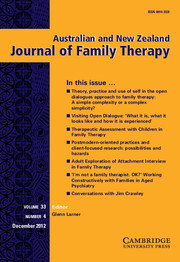Article contents
Asperger's Coming Out of Our Ears: Making Sense of a Modern Epidemic
Published online by Cambridge University Press: 02 March 2012
Abstract
Asperger's syndrome (AS) as a diagnostic category has gained enormous popularity and the label is being applied with increasing liberality. While greater awareness of the disorder may be of advantage to certain children and their families, we argue that the over-inclusive use of the diagnosis may also lead to professional conflicts and ethical dilemmas. Perhaps most concerning of these is that diagnostic ‘generosity’ may exclude children from treatments they would have received if an alternative formulation had been considered. We present clinical scenarios, with special consideration of contextual and intergenerational influences on the children's early lives, and offer alternative conceptualisations. We argue that the new ‘epidemic’ of Asperger's should not be allowed to compromise our professional standards. Assessment should always include a detailed family and developmental history. Finally, we would be interested in feedback from clinicians working in this field.
- Type
- Articles
- Information
- Australian and New Zealand Journal of Family Therapy , Volume 29 , Issue 1 , 01 March 2008 , pp. 1 - 9
- Copyright
- Copyright © Cambridge University Press 2008
- 2
- Cited by


